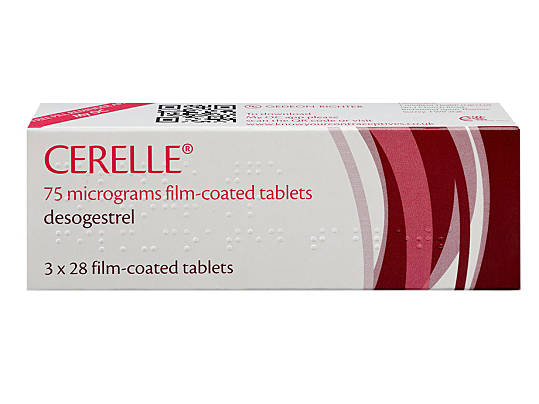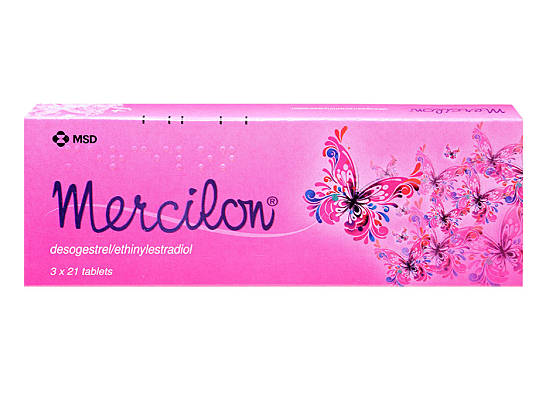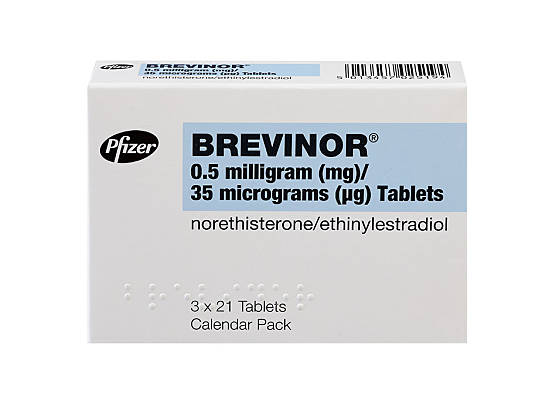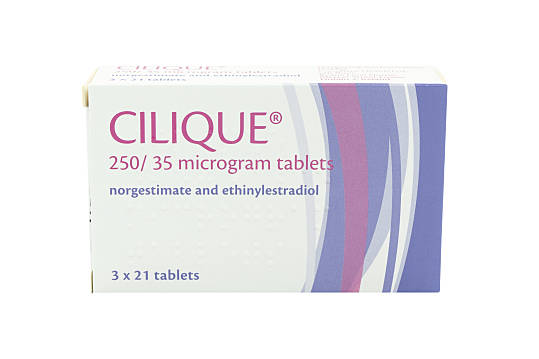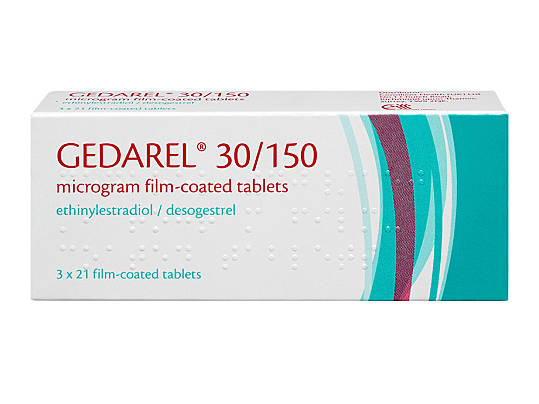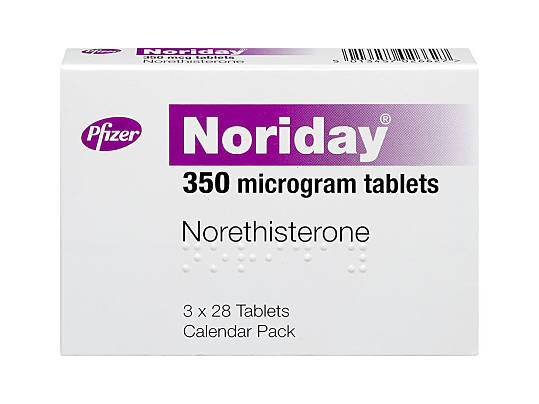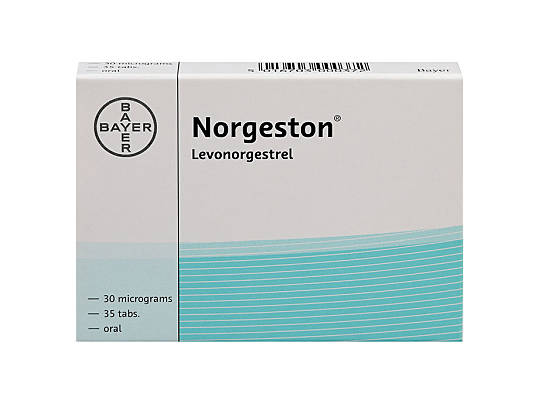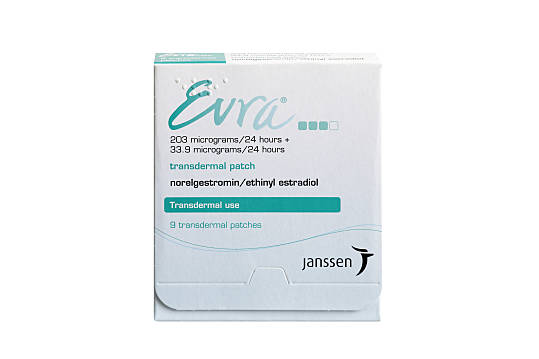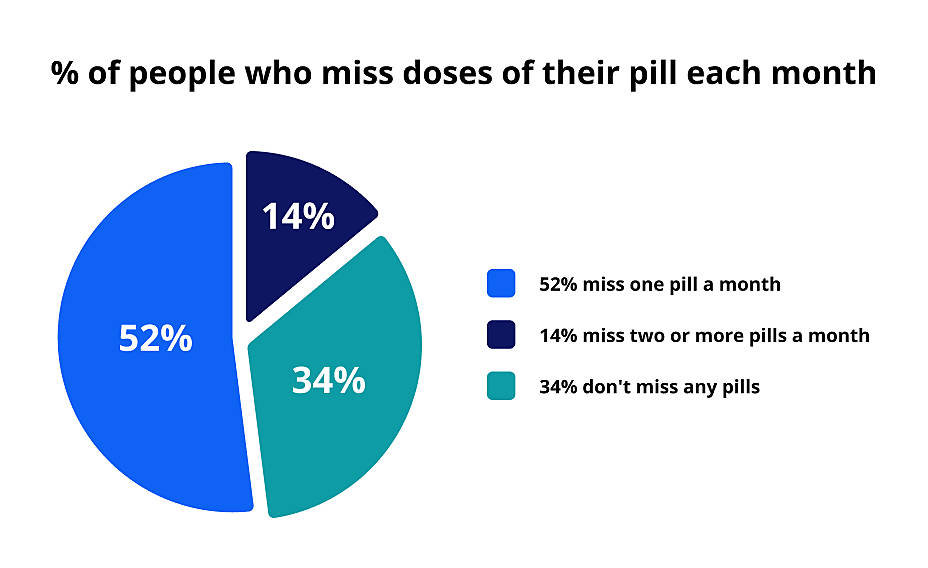Order the Contraceptive Pill online
Contraceptive pills are a form of birth control which are over 99% effective at preventing pregnancy when used correctly.
Prices from £12.99
Simply fill in a brief consultation questionnaire and one of our doctors will review your request today.
There are many types of contraceptives to choose from but most are effective and safe when approved by a doctor. You can order the pill from ZAVA online or read more about about how each contraceptive pill works and finding the right pill for you. Read more
Find your contraceptive pill online by brand
In stock. Prices from £14.00
In stock. Prices from £14.99
In stock. Prices from £19.00
In stock. Prices from £26.99
In stock. Prices from £20.99
In stock. Prices from £19.99
In stock. Prices from £17.99
In stock. Prices from £19.00
In stock. Prices from £22.99
In stock. Prices from £18.00
In stock. Prices from £22.99
Out of stock. Prices from £17.00

In stock. Prices from £17.00
In stock. Prices from £40.99
In stock. Prices from £19.99
In stock. Prices from £15.00
In stock. Prices from £18.99
In stock. Prices from £16.00
Out of stock. Prices from £19.00
In stock. Prices from £15.99
In stock. Prices from £12.99
In stock. Prices from £15.00
In stock. Prices from £15.99
In stock. Prices from £13.99
In stock. Prices from £15.00

In stock. Prices from £35.99
In stock. Prices from £24.00
In stock. Prices from £19.00
In stock. Prices from £33.99
Out of stock. Prices from £12.99

In stock. Prices from £29.00

No results found.
Please check your spelling or try another treatment name.
About the Contraceptive Pill
-
-
The contraceptive pill is an oral tablet (one you swallow) that helps prevent unwanted pregnancies. They contain man-made hormones and need to be taken once a day. Contraceptive pills are non-invasive, which means they don’t need to be implanted or inserted into your body to work. If you’re new to the pill, our doctors can check your consultation questionnaire and suggest a pill that will suit you best.
Want to learn a bit more before you order? ➤ See our page on finding the best contraceptive pill for more information.
-
-
Introduced in May 1950 and approved for the first time in 1960, the birth control pill was a revolution in contraceptive healthcare. Since the introduction of the contraceptive pill in the UK, there has been ongoing research and development in the use of the pill, most recently leading to some mini pills being made available over-the-counter.
-
-
Because the pill needs to be taken regularly to work, it means that once you stop taking it, it can be possible for you to get pregnant. This means it’s easily reversible, so you can stop and start quickly for flexible contraceptive protection. The pill won’t affect your fertility in the long-term, so you will have the same chance to get pregnant as normal once you stop.
-
-
Part of the ongoing development of the pill has been the introduction of new ‘generations’ of the pill. These new generations generally involve new progesterones which come with pros and cons compared to previous or newer ones.
Pros Cons First generation contraceptive pills Paved the way for other generations
Needed high levels of oestrogen to work, meaning a higher risk of oestrogen-related side effects. This generation is not used much anymore
Second generation contraceptive pills Safer than the first generation and more male hormone activity, helping improve conditions like polycystic ovary syndrome or endometriosis.
Higher chance of male hormone side effects like acne or mood swings.
Third generation contraceptive pills Less likely to cause male or female hormone-related side effects than other generations.
Less positive effects on hormone-related conditions like endometriosis.
Fourth generation contraceptive pills Less likely to cause male hormone side effects like acne or mood swings.
Less likely to improve conditions like polycystic ovary syndrome or endometriosis.
-
-
There are a few different types of contraceptive pill, including:
- combined pills, which contain 2 different hormones
- mini pills, which only contain one hormone
- every day pills, which are combined pills that come with medication-free pills to help you keep track
- phasic pills, which is a type of combined pill where the dose changes during a 21-day cycle
- low-oestrogen pills, which are combined pills that have less oestrogen in than others
-
-
Combined contraceptive pills contain two man-made sex hormones, oestrogen and progesterone. These are like the natural hormones produced by your ovaries. Normally combined pills are taken for 21 days and then you take a 7-day break. But, some pills are taken every day, including pills without medication during the 7-day break to help you keep track.
There are many different brands of the combined oral contraceptive pill. They all work in a similar way but contain different amounts and types of oestrogen and progesterone. These different hormones and doses mean there is a difference in the kinds of extra benefits and side effect risks (like benefits to acne or premenstrual syndrome and risks of breast tenderness and headaches).
➤ See our page on contraceptive pill brands for more information.
-
-
The main advantage of every-day pills is that you don’t need to keep track of the 7-day break between packs yourself. You simply take the medication-free pills for 7 days and then start your next pack right away.
-
-
-
-
The mini pill is also known as the progesterone-only pill (POP). Packs usually come in multiples of 28 pills and you take them every day without a break.
It’s different from combined pills because it does not contain oestrogen. It only contains one hormone, progesterone. This means there’s less risk of oestrogen-related side effects (like breast tenderness and headaches) but also less chance of benefits to certain health conditions (like acne or premenstrual syndrome). There’s also a higher risk of progesterone-only side effects like acne and mood swings.
➤ See our page on the mini pill for more information.
-
-
Mini pill Combined pill Pros - Some brands available over-the-counter
- No oestrogen-related side effects
- Suitable for some people where the combined pill isn't’
- Less progesterone-only side effects
- Bigger window of opportunity for doses
- Oestrogen-related benefits
Cons - More progesterone-only side effects
- Smaller window of opportunity for doses
- No oestrogen-related benefits
- Not available over-the-counter
- Oestrogen-related side effects
- Suitable for fewer people than the mini pill
-
-
Phasic pills are a type of combined contraceptive pill. The amount of hormone in each pill in the pack changes during the 21-day cycle. Because the hormone levels change throughout the pack with phasic pills, it’s important to take them in the correct order. The pills are usually colour-coordinated, so you can tell which dose you’re taking.
-
-
There are a few types of phasic pill:
- Biphasic pills change your hormone level once during the pack. The biphasic we offer contains the same amount of oestrogen each day. Halfway through your cycle, the amount of progesterone is increased.
- Triphasic pills contain 3 different doses of hormones. About every 7 days, the hormone combination changes. But it depends on the brand whether the oestrogen and progesterone levels change.
- Quadriphasic pills are like triphasic ones. They just include 4 different dosage combinations instead of 3.
-
-
You can also get monophasic or non-phasic pills. The majority of pill brands in the UK are monophasic, meaning each pill has the same amount of oestrogen and progesterone. This keeps your hormone levels the same throughout the pack.
There is no difference in side effects, bleeding patterns, or how well you’re protected against pregnancy between monophasic and phasic pills. Doctors usually prescribe monophasic pills first, rather than phasic pills.
-
-
Apart from monophasic pills having only one dose during a cycle and phasic pills having more than one, there’s not much difference between them. Side effects, benefits and effectiveness are all the same. One major drawback of phasic pills is that you have to manage more doses to switch between, which comes with a higher risk of forgetting to take the right pills at the right time.
-
-
Low oestrogen pills are a type of combined contraceptive pill with a smaller amount of oestrogen in them.
A lower dose of oestrogen may make it more likely for you to get breakthrough bleeding. But it can help you if you avoid oestrogen-related side effects of the pill, like:
- breast tenderness
- feeling sick (nausea)
- bloating
- fluid retention
Women who use a contraceptive pill with 30 micrograms of oestrogen or less have a lower risk of blood clots in their lungs (pulmonary embolism). The risk of heart attack and stroke also seems to increase with higher doses of oestrogen.
-
-
Low-oestrogen High-oestrogen Less chance of oestrogen-related side effects, like:
- breast tenderness
- headaches
- nausea
More chance of oestrogen-related benefits, like:
- premenstrual syndrome
- acne
- perimenopause
Less chance of oestrogen-related benefits, like improvements to:
- premenstrual syndrome
- acne
- perimenopause
More chance of oestrogen-related side effects, like:
- breast tenderness
- headaches
- nausea
-
-
The contraceptive pill works by releasing hormones into the body, causing changes in your body that help prevent pregnancy. Combined and mini pills work slightly differently in the way they prevent pregnancies because they contain different hormones.
-
-
The hormones in the combined pill work to prevent pregnancy in a few different ways. They work by:
- thickening the mucus at the entrance to the womb, making it harder for sperm to reach an egg
- thinning the lining of the womb, so it’s harder for a fertilised egg to attach and grow into a baby
- stopping an egg from being released from the ovaries in the first place
-
-
The progesterone in mini pills prevents pregnancy in a similar way to the combined pill. It also works by:
- thickening the mucus at the entrance to the womb, making it harder for sperm to reach an egg
- thinning the lining of the womb, so it’s harder for a fertilised egg to attach and grow into a baby
Most mini pills don’t stop eggs being released from the ovaries, but ones containing desogestrel can.
-
-
If used correctly, the contraceptive pill is over 99% effective at preventing pregnancy. People sometimes forget to take their pill or do not take it at the same time every day. This makes the pill less effective, and so you’re more likely to get pregnant.
Even if you do not take your pill perfectly, it’s more effective at preventing pregnancy than condoms and diaphragms. But even when taken perfectly, the contraceptive pill is slightly less effective compared to long-acting, reversible methods of contraception like the IUD (intrauterine device), IUS (intrauterine system), implant and injections. No contraceptive is 100% effective at preventing pregnancy.
Can you get pregnant when on the pill? “Even when used perfectly, there is still a risk of pregnancy on the pill. No contraception is 100% effective so it’s good to be aware of the signs of pregnancy and take a test or speak to a doctor if you think you could be pregnant, even if you’re taking the pill.” – Dr Babak Ashrafi, Clinical Lead for Service Expansion at ZAVA.
-
-
When used perfectly When used normally Combined pill 1.26%
2.18%
Mini pill 0.14%
0.41%
Contraceptive patch 0.99%
1.24%
Vaginal ring 0.96%
1.23%
Implants 0%
0.30%
Contraceptive injection 0%
0.30%
Intrauterine device -
1.26%
Intrauterine system -
0.11%
Condom -
5.9%
-
-
The contraceptive patch works in a similar way to combined pills. The patch sticks to your skin instead of being a tablet that you swallow. It releases man-made progesterone and oestrogen into your bloodstream through your skin.
Like the pill, the patch works by:
- thickening the mucus at the entrance to the womb, making it harder for sperm to reach an egg
- thinning the lining of the womb, so it’s harder for a fertilised egg to attach and grow into a baby
- stopping an egg from being released from the ovaries in the first place
The contraceptive patch ZAVA offers is Evra. Side effects and risks of taking Evra are like the combined pill.
-
-

Studies show that 52% of people who use the pill forget at least one dose a month and 14% forget two or more doses each month.
Taking the pill is easy, just swallow it whole, with water if needed. Don’t ever cut up or crush your contraceptive pill. Always take your pill as advised by your doctor.
-
-
“When taken properly, contraceptive pills are 99% effective in preventing unwanted pregnancy. It can be good to take contraceptive pills if you’re at risk of getting pregnant and a doctor, nurse or pharmacist has approved treatment for you. There are possible side effects of the pill but these are normally mild and can go away after a while.” – Dr Babak Ashrafi, Clinical Lead for Service Expansion at ZAVA.
-
-
Contraceptive pills need to be taken once a day, around the same time. They are best taken with food but can be taken on an empty stomach if they need to in order to be taken on time.
Even though they should be taken around the same time each day, combined pills can actually be taken up to 24 hours late and still be effective. Mini pills on the other hand have to be taken within the same 3-hour window every day to be effective, except for mini pills containing desogestrel which can be taken up to 12 hours late.
STI protection on the pill: “It’s important to remember that contraceptive pills do not protect you against STIs (sexually transmitted infections). So, you should use extra protection, like a condom, if you have sex with someone and you do not know their sexual history.” – Dr Babak Ashrafi, Clinical Lead for Service Expansion at ZAVA.
-
-
You can take the pill with any food, there’s no dietary restrictions. It’s best to take the contraceptive pill with food because it can help avoid nausea (feeling sick) as a side effect.
Drinking alcohol on the pill doesn’t stop it from working. But, alcohol can lead to stomach problems like vomiting or diarrhoea, which stop your most recent dose from being absorbed by your body.
-
-
What to do when you forget a dose of your contraceptive pill depends on what pill you’re taking and how long it’s been since it was supposed to be taken.
➤ Also see our page on forgetting the pill for more information.
-
-
Source: https://www.fsrh.org/documents/fsrh-ceu-guidance-recommended-actions-after-incorrect-use-of/
Is your risk of pregnancy increased? What to do now? You forgot 2 or more pills after your pill-free interval (9 or more days have passed since the last active pill) Yes
- take the most recent missed pill as soon as you remember
- continue with your regular schedule
- use extra protection (like condoms) for the next 7 days
- talk to your GP about emergency contraception if you’ve had unprotected sex during or after the pill-free interval
You forgot 1 pill in week 1 of your current month (the 1st pill was taken correctly) No
- take the missed pill as soon as you remember
- continue with your regular schedule
- you do not need to use extra contraception
You forgot 2-7 pills in week 1 of your current month (the 1st pill was taken correctly) Yes
- take the most recent missed pill as soon as you remember
- continue with your regular schedule
- use extra protection (like condoms) for the next 7 days
- talk to your GP about emergency contraception if you have had unprotected sex during the pill-free interval or week 1
You forgot 1 pill in week 2 or week 3 of your current month (or in any subsequent week if you skip the pill-free interval) No
- take the missed pill as soon as you remember
- continue with your regular schedule
- you do not need to use extra contraception
You forgot 2-7 pills in week 2 or week 3 of your current month (or in any subsequent week if you skip the pill-free interval) Yes
- take the most recent missed pill as soon as you remember
- continue with your regular schedule
- if you have forgotten to take 2 or more pills before your pill-free interval, pass over the pill-free interval
- use extra protection (like condoms) for the next 7 days
- emergency contraception is not necessary
You forgot more than 7 consecutive pills (in any week of the current month) Yes
- if you want to continue taking the pill, you take it as if you’re newly starting it
- use extra protection (like condoms) for the next 7 days
- talk to your GP about emergency contraception
-
-
Is your risk of pregnancy increased? What to do now? You forgot 1 pill and remember within the window for taking it (3 or 12 hours depending on the exact brand) No
- take the missed pill as soon as you remember
- continue with your regular schedule
- you do not need to use extra contraception
You forgot 1 pill and notice after the window for taking it (3 or 12 hours depending on the exact brand) Yes
- take the missed pill as soon as you remember
- continue with your regular schedule
- use extra protection (like condoms) for the next 2 days
- talk to your GP about emergency contraception if you’ve had unprotected sex within 48 hours after missing your pill
-
-
There’s a few ways you can help yourself remember to take your pill at the right time and every day, including:
- setting an alarm for yourself
- using a pill reminder box with the days of the week on it
- using a pill reminder app
- switching to the combined pill if you’re on the mini pill and you keep forgetting
-
-
How long it takes for your pill to work depends on the pill you’re on and when in your period cycle you start it. Your contraceptive pill could start working right away, or it may take 2 to 7 days before you’re fully protected.
How long does the combined pill take to work?
It depends which day in your cycle you start:
- If you start days 1 to 5 of your period you’re protected right away
- If you start after day 5 of your period, you won’t be protected right away and you’ll need to use extra protection for 7 days
How long does the mini pill take to work?
It depends which day in your cycle you start and if you have short period cycles:
- If you start days 1 to 5 of your period you’re protected right away
- If you start after day 5 of your period, you won’t be protected right away and you’ll need to use extra protection for 2 days
- If you have a shorter than average period cycle, you should use extra protection for 2 days no matter when you start the pill
-
-
You can buy contraceptive pills online from trusted online doctor services like ZAVA. These services are regulated and run by real doctors who can make sure you’re getting the right contraception for you.
ZAVA offers:
- quick and easy consultation services
- professional doctor assessment and prescription
- discreet, to-your-door delivery service
- comprehensive follow-up care included
➤ Start an online assessment and place an order for you contraceptive pill now
-
-
Yes, some contraceptive pills are now available over-the-counter from most UK pharmacies. Currently, only certain brands of the mini pill are available over-the-counter, including:
- Hana
- Lovima
-
-
All medications come with a risk of side effects. Most side effects of the pill are mild and go away after a while.
Side effects can vary depending on the type and amounts of hormones used in each combined pill or mini pill, so you should always read the information leaflet that comes with your pill for more information on potential side effects.
➤ See our page on contraceptive pill side effects for more information.
Combined pill side effects
Common side effects of the combined contraceptive pill include:
- headaches
- mood swings
- nausea
- dizziness
- low sex drive
- sore or tender breasts
- changes to your bleeding pattern, especially in the first 3 months
Mini pill side effects
Common side effects of the progesterone only pill include:
- changes to bleeding patterns
- low sex drive
- acne
- headache
- breast pain
- nausea
-
-
The pill doesn’t cause withdrawal so you shouldn’t get any side effects from stopping, but if the pill was improving your periods you may find they get worse again after stopping.
Depending on what pill you’re on, you’ll be able to get pregnant again after 3, 12 or 24 hours. When coming off the contraceptive pill, you will also notice any side effects from your pill will clear up and any extra benefits to your periods or other health conditions will disappear too.
Will I lose weight if I come off the pill? “If you were experiencing temporary weight gain due to water retention as a side effect of your pill, you may lose weight after stopping. But, weight gain you experience on the pill may not be a side effect, it may be normal weight gain. You may find your weight doesn’t go down after stopping the pill.” – Dr Babak Ashrafi, Clinical Lead for Service Expansion at ZAVA.
➤ See our weight loss service if you’d like help losing weight.
-
-
Although there are some health risks linked to using contraceptive pills, they should be safe for you if you get your medication from a regulated service like ZAVA, a GP or sexual health clinic. They’ll check your medical history to make sure it’s right for you and recommend another choice if needed.
Contraceptive pill and breast cancer risk
There’s a small increased risk of breast and cervical cancer in women using combined pills compared to those who don’t. But 10 years after you stop taking the pill, your risk level goes back to normal. On the other hand, the combined pill can lower your risk of womb (uterus) cancer, ovarian cancer and bowel cancer.
A link between breast cancer and the mini pill has not been proven or disproven. If there’s a risk, it’s likely to be very small and disappear after a time once you stop taking it.
Contraceptive pill risk of blood clots
Contraceptive pills that contain oestrogen (combined pills) can slightly increase your risk of blood clots if you’re already at risk of them. This risk is higher with some types of combined pills than others, depending on the type of progesterone hormone they contain.
Blood clots can cause:
- deep vein thrombosis (a blood clot in the leg)
- pulmonary embolus (a blood clot in the lung)
- stroke
- heart attack
The risk of developing a blood clot is small and your doctor will check to see if you have any specific risk factors that can make a clot more likely. Risk factors include if you:
- are over 35 and smoking (or if you have quit in the last year)
- are over 50
- are overweight
- have a history of migraines with aura
- have high blood pressure
- have a close relative who has had a blood clot under the age of 45
- have had a blood clot, stroke, or heart attack before
- have a heart condition called atrial fibrillation or angina
- are immobile
- have a hereditary (inherited from your parents) blood clotting condition
The list above doesn’t include every risk factor out there. When starting or reordering contraceptives, you should always give your doctor or nurse information on any old or new medical conditions.
-
-
Some medications can interact with the pill. You should tell healthcare professionals about any medication you’re taking, including over-the-counter or herbal remedies. Some medication can react with your pill or patch, making it less effective or safe, including:
- antibiotics like rifampicin
- some epilepsy medications
- some HIV medications
- St John's wort
-
-
The pill isn’t safe for everyone, which is why a doctor, nurse or pharmacist has to check before you can start treatment. As long as a qualified healthcare professional has approved the pill for you then it should be safe.
There is a difference between who can take the combined pill and who can take the mini pill.
Who can’t use the combined pill
The combined pill may not be right for you if:
- you’re pregnant or breastfeeding
- you smoke or you’ve stopped smoking in the last year and you’re 35 or over
- you’re overweight
- you’ve had blood clots or you have a family history of blood clots
- you’ve had a stroke
- you’ve got a heart condition or high blood pressure
- you get severe migraines with an aura
- you’ve got a history of breast cancer
- you’ve had gallbladder or liver disease
- you’ve had diabetes with complications in the last 20 years
Who can’t use the mini pill
The mini pill may not be right for you if:
- you might be pregnant
- you get unexplained bleeding between periods or after sex
- you’ve had artery disease, heart disease or strokes
- you’ve had breast cancer before
- you’ve had liver disease, including cirrhosis or liver tumours
-
-
Choosing a pill can be tricky but our doctors are here to help. Submit a consultation and they can suggest a pill they think will suit you best. They will be able to take into account your personal circumstances and check that the pill is safe for you before they prescribe it.
-
Frequently asked questions
Where can I get contraceptive pills safely?
As long as a doctor, nurse, or pharmacist has approved your pill then it will be safe for you. You can get the pill safely from your GP surgery, sexual health clinics, UK pharmacies or online doctor services like ZAVA.
Does the contraceptive pill cause weight gain?
The pill does not cause permanent weight gain. Contraceptive pills can cause temporary weight gain due to water retention. This should go away on its own.
➤ See our page on the pill and weight gain for more information.
Does the contraceptive pill stop periods?
The combined pill usually includes a 7-day break every 21 days during which you have a withdrawal bleed similar to a period. The mini pill generally stops periods but you can still have some light breakthrough bleeding or spotting.
Contraceptive pills are meant for avoiding pregnancy. If you want to delay your period for reasons like trips abroad or religious festivals, period delay treatment might be a more appropriate choice.
➤ See our page on does the pill stop your period for more information.
Can the contraceptive pill cause thrush?
Contraceptive pills don’t cause yeast infections directly, but the pill can increase your risk of getting thrush. This is because the hormones in the pill change the natural hormone balance of the vagina, which can lead to an overgrowth of yeast bacteria. You can order thrush treatment online from ZAVA.
What does achy legs on the pill mean?
Getting achy legs on the combined pill could be a sign of deep vein thrombosis, which is a serious health condition. Get medical help right away if you experience:
- leg pain
- leg swelling
- difficulty breathing
- chest pain
Can the pill cause high blood pressure?
The combined pill can raise your blood pressure slightly, but that doesn’t mean you’ll have high blood pressure from a clinical point of view. This rise in blood pressure is only a problem if you already have high blood pressure or you’re at risk of it.
Do antibiotics affect the pill?
Most antibiotics don’t affect the pill. Antibiotics that do affect the pill include
- rifampicin
- rifabutin
Tell your doctor that you’re on the pill or on one of these antibiotics before starting the other. You may need to use extra contraceptive protection during your course of antibiotics.
When can you go on contraception after giving birth?
If you are feeding your baby formula milk exclusively, or combining breastfeeding with formula feeding, then your periods will probably start again from six weeks to three months after giving birth. You could be fertile two weeks before starting your periods again though, so if you’re not planning on getting pregnant again you need to consider using some type of contraception again pretty soon after having your baby.
Even if your periods haven’t come back yet, you could still be fertile without knowing it. Using contraception again after giving birth can help give you the peace of mind that you won’t get pregnant again (even if sex is the last thing on your mind!).
If you are breastfeeding your baby then some forms of combined hormonal contraceptives (containing oestrogen and progestogen) may not be recommended as they may reduce your milk supply.

Dr Babak Ashrafi Clinical Lead for Service Expansion
Accreditations: BSc, MBBS, MRCGP (2008)
Babak studied medicine at King’s College London and graduated in 2003, having also gained a bachelor’s degree in Physiology during his time there. He completed his general practice (GP) training in East London, where he worked for a number of years as a partner at a large inner-city GP practice. He completed the Royal College of GPs membership exam in 2007.
Meet our doctorsLast reviewed: 16 Aug 2023
-
Combined Hormonal Contraception (2019) The Faculty of Sexual and Reproductive Healthcare [accessed 7th July 2023].
-
Combined pill: your contraception guide (2020) S [accessed 7th July 2023].
-
Progesterone-only Pills (2019) The Faculty of Sexual and Reproductive Healthcare [accessed 7th July 2023].
-
The progestogen-only pill: your contraception guide (2021) NHS [accessed 7th July 2023].
-
UK Medical Eligibility Criteria for Contraceptive Use (2019) The Faculty of Sexual and Reproductive Healthcare [accessed 7th July 2023].

